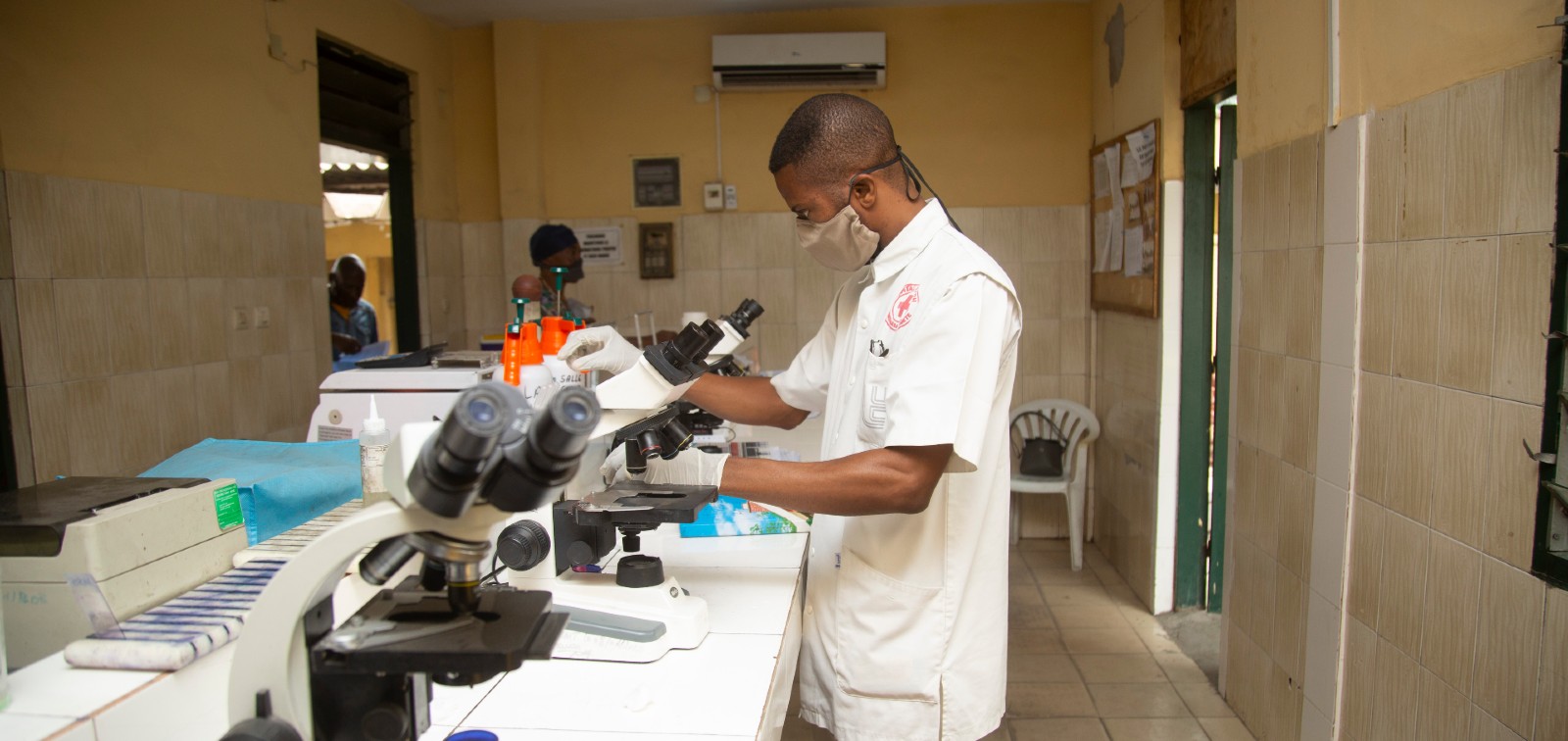ANTICOV, the Largest Clinical Trial in Africa for People with Mild COVID-19, Test New Drug Combination
The nitazoxanide + ciclesonide combination will be tested shortly in the participants recruited by the two Mozambican centers with which ISGlobal works.
27.04.2021
The ANTICOV clinical trial, carried out in 13 African countries, has begun recruiting participants to test a new drug combination, nitazoxanide + ciclesonide, that treats people with mild or moderate COVID-19 before they become severe cases.
ANTICOV is an initiative by a consortium of 26 partners which include leading African research institutions and international health organizations, including ISGlobal, a centre supported by the ”la Caixa” Foundation. The project is being coordinated by the Drugs for Neglected Diseases initiative. It is the largest trial in Africa to identify early COVID-19 treatments that can prevent progression to severe disease and potentially limit transmission.
“In many African countries our worst fears are being realised, as already-strained intensive care units are beginning to fill up with COVID-19 patients,” said John Nkengasong, Director of the Africa Centres for Disease Control and Prevention (Africa CDC). “Yet the number of vaccine doses that are reaching the African continent is too limited. The rapid spread of new variants also threatens to reduce the efficacy of existing vaccines, which is another major cause for concern. We need urgently to identify affordable and easy-to-administer treatments that can prevent the evolution to a severe form of the disease and slow the rate of infection.”
The Africa CDC has recorded more than 117,000 deaths from COVID-19 on the continent; however, the true toll is estimated to be higher. And with new variants spreading, an increase in new cases is expected in the coming months.
A new arm of the study
ANTICOV is testing a new potential treatment that combines the well-known antiparasitic nitazoxanide and the inhaled corticosteroid ciclesonide. The combination has two different mechanisms of action that could work at different stages of infection: one that is potentially active during the first, viral replication stage of SARS-COV-2 infection and one that decreases the likelihood of an inflammatory stage that can start a few days later. Both drugs are already commercially available and will be affordable and easy to access and administer, if shown to be effective against COVID-19.
“It has been more than a year since COVID-19 was declared a pandemic, and while we have vaccines registered for use, there are still very few treatment options – especially for the early stage when we could prevent severe progression, potentially reduce transmission, and maybe prevent the risk of developing post-COVID condition,” said Nathalie Strub-Wourgaft, Director of the COVID-19 Response for DNDi. “We still do not have a treatment for mild-to-moderate cases and this remains a research priority, in Africa – and throughout the world.”
The inclusion of the nitazoxanide + ciclesonide combination in a new arm of the ANTICOV study has been reviewed through the WHO-created African Vaccine Regulatory Forum (AVAREF) – which facilitated the regulatory process in each ANTICOV country – and by the WHO COVID-19 Research Ethics Review Committee.
First participants recruited
The first participants in the new study arm have been recruited in theDemocratic Republic of Congo (DRC) and the Republic of Guinea. In the coming weeks, additional trial sites will enrol participants in Burkina Faso, Cameroon, Côte d’Ivoire, Equatorial Guinea, Ethiopia, Ghana, Kenya, Mali, Mozambique, Sudan, and Uganda.
In Mozambique, where ISGlobal is working with two of the hospitals where the clinical trial is being carried out (the Manhiça Health Research Centre or CISM and the Centro de Investigação e Treino em Saúde da Polana Caniço or CISPOC, which is affiliated to country’s National Institute of Health), recruitment is expected to start by the end of May. “We already have national ethical approval and are waiting for the National Pharmacy Directorate for authorization to import the drugs”, says Laura de la Fuente, ANTICOV project manager in Mozambique.
In addition, ISGlobal is co-leader, along with the Institute of Tropical Medicine (ITM) in Antwerp (Belgium), of one of the project’s two ancillary studies. This is an immunology study that will be carried out in 6 countries and aims to analyse whether the treatments tested in the clinical trial in patients with mild to moderate COVID-19 alter the strength or duration of immune responses to SARS-CoV-2. The researchers will study antibodies and cellular response and compare the immune responses of symptomatic and asymptomatic patients.
And adaptative flexible trial
ANTICOV is an ‘adaptive platform’ trial, a flexible and innovative trial design that allows for treatments to be added or removed as new evidence emerges.
The trial started in September 2020 with the HIV antiretroviral combination lopinavir/ritonavir and the malaria drug hydroxychloroquine. These two initial arms were suspended in December 2020 after WHO updated its treatment guidelines to recommend against the use of these drugs to treat COVID-19 patients, including patients with mild-to-moderate COVID-19.
The ANTICOV Consortium is now in the process of selecting and preparing the next arm of the trial. The selection of trial drugs for ANTICOV is informed by reviews conducted by the expert working group of the Unitaid and Wellcome-led Access to COVID-19 Tools Accelerator (ACT-A) Therapeutics Partnership.
Major funding for the ANTICOV consortium is provided by the German Federal Ministry of Education and Research (BMBF) through KfW and by the global health agency Unitaid as part of ACT-A. Additional support comes from the European & Developing Countries Clinical Trials Partnership (EDCTP) - under its second programme supported by the European Union with additional funding from the Swedish government -, the Starr International Foundation and the Stavros Niarchos Foundation (SNF).



